I was in a conversation with a group of people when a Black male referred to his girlfriend as an angry Black female! He laughed, but I wanted to know why he said that and what he meant when he said it. Do people just say this as the phrase of the day, like “don’t go there?” Or, “it is what it is.” Do they really know what angry Black female/woman means? Do they know the root of the statement, stereotype, or myth? To be honest, I didn’t know the origin of Black women being categorized as angry women. So, I packed my sowing tool bag and began my trip into research city. Research on anger in Black women is lacking, yet extremely important. This is one stereotype among many others that has permeated and continues to influence society’s view of the Black woman. I had to dig deep in the dirt to get to the root of it all!
Roots of the Angry Black Woman
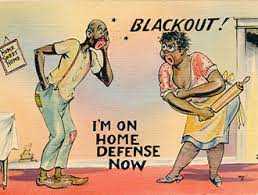 Dating back to the 19th century, Black women have become the victims of negative stereotyping in mainstream American culture. American society portrays the Black woman as sassy, ill-mannered, and ill-tempered by nature, and ignorant without provocation. Related concepts are the “sapphire” or “sassy Black woman”, Mammies, and jezebels. Black women have long been dogged by negative stereotypes, rooted in a history of racism and slavery.
Dating back to the 19th century, Black women have become the victims of negative stereotyping in mainstream American culture. American society portrays the Black woman as sassy, ill-mannered, and ill-tempered by nature, and ignorant without provocation. Related concepts are the “sapphire” or “sassy Black woman”, Mammies, and jezebels. Black women have long been dogged by negative stereotypes, rooted in a history of racism and slavery.
The Sapphire Caricature portrays Black women as rude, loud, stubborn, and malicious. One who desires to dominate and complain. We have seen the angry Black woman popularized in the movies and on TV. She has a cutting-edge tongue and emasculating with her hands on her hips and her head swaying. The Black man is usually her target, but it could be anyone who disrespects her. The Caricature is a harsh portrayal of Black women. It is a social control mechanism used to punish those who violate the societal norms -keeping them in their place to be passive, submissive, and non-threatening. It wasn’t until the Amos ‘and’ Andy radio show that these characteristics of domineering and aggressive female images became associated with Sapphire Stevens mimicking and mocking Black behavior and dialect.
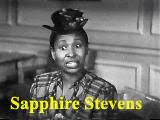
Today the Same as Yesterday
Unfortunately, the media still seems to portray Black women in a negative light. The angry Black woman stereotype has ceased to fade away. In movies and TV shows, the angry Black woman is often used as comedic relief. Thinking back on Sanford and Son, remember Aunt Esther? We laughed at her portrayal in the situational comedy sitcom. She was a Sapphire character. Bible swinging angry nemesis and sister-in-law of Fred Sanford, Esther would call him a “fish-eyed fool” and old sucka” or “beady-eyed heathen.” Mostly, Aunt Esther dominated her alcoholic husband Woodrow. Here is where you have the idea of the aggressive Black woman dominating a weak, morally defective Black man.
There are many examples of Sapphire that exist. There’s Florence from “The Jeffersons” often antagonistic, back-talking, and disrespectful to George. Another Sapphire was Pam from “Martin.” In Tyler Perry’s films, Why Did I Get Married? And Why Did I Get Married Too? Tasha Smith’s character, Angela, was another Sapphire who, one jab after another, emasculated her husband. In the 2012 film “Think Like A Man,” lead female characters were depicted as angry Black women constantly looking to start an argument.
Reality TV shows like the Real Housewives of Atlanta with NeNe Leakes also perpetrates the angry Black woman stereotype that fuels the reality-TV genre. When these depictions are showcased through whatever medium, subconscious beliefs about Black women are created, which can have negative implications in society. Granted there are plenty of white women acting a fool on television every day. They are running companies, being great mothers, and having loving relationships. However, we don’t see enough Black women on the big screen or TV where they are shown in this light.
Michelle Obama, Jemele Hill, and Shonda Rhimes all have something in common. At some point during their public lives, they were labeled as angry. The stereotype prevailed in the sports world when Serena Williams was penalized at the U.S. Open Final on Sept. 8. She received a code violation for breaking her racket and calling the umpire a thief. Australian cartoonist Mark Knight published a racist illustration of Williams that featured the same physical characteristics that Blacks were made fun of in minstrel shows: big lips, heavy-set build, and nappy hair.

It seems impossible to be a Black woman and not be angry after generations of oppression, discrimination, and erasure,” said Robin Boylorn, an intercultural communications professor at the University of Alabama. She goes on to say, “If anything, it’s a surprise Black women aren’t as consumed by anger as they should be considering the struggles they currently and will continue to face.” Yet, given how Black women are portrayed in the media, it’s as if society wants them to be angry. Men are allowed to be upset as a way to demonstrate their masculinity. White women are allowed to be irate, too. But Black women aren’t allowed to express irritation without being demonized.
Dispelling the Myth: Overcoming the Angry Black Woman Stereotype
Black women must overcome the angry black woman stereotype, which characterizes them in a negative light. How do we begin to dispel the myth? In an article in Forbes magazine, Janice Gassam Asare, senior contributor offer strategies to help Black women overcome the angry Black women stereotypes in the workplace. Although she writes about the topic as it relates to the workplace, I think it’s relevant on many levels and in any place.
Educate yourself. Part of the problem and the reason why this stereotype persists is a lack of awareness that this stereotype exists as well as a lack of understanding regarding Black women’s experiences. Asare writes that there are a number of different books that detail the Black woman’s experience and will give outsiders a deeper understanding of what Black women go through on a daily basis. I believe these resources will also help the Black women understand herself. Education is a powerful tool in dismantling prejudiced and racist ideals. A lack of understanding and awareness of the experiences of different marginalized groups only further widens the perceived gap.
Express yourself. Bottling up one’s emotions is an unhealthy practice in general. Black women were found to experience many negative health outcomes including anxiety, at a greater rate than their white counterparts. Repressing emotions like anger for fear of adhering to the angry Black woman stereotype may actually end up being more damaging in the long run. However, when Black women display a range of emotions, this can help others to see that Black women are multifaceted and dynamic. Witnessing Black women displaying different emotions, whether that is anger, sadness or joy helps to normalize it.
Check yourself. Unconscious biases may further perpetuate the angry Black woman stereotype. More focus should be on these unchecked beliefs and views that each people hold towards others. It is imperative to speak up when you witness the label being applied to Black women. Whether it is you who is being labeled or another Black woman to who this stereotype is being applied, when stereotyping goes unchecked, this gives others the perception that this behavior is acceptable. Anyone who is complicit when witnessing stereotypes being perpetuated is contributing to the larger problem. The responsibility of deconstructing the myth of the angry Black woman lies in you and me. Use your voice to amplify the voices of Black women. Learn more about how you could be contributing to the problem, and help dispel the myth and foster a more positive image of Black women.
As I conclude this article, I stop to ask myself, if at times, I exhibit the angry Black woman behavior towards my husband that society says I as a Black woman characterize? Hmm…, something for me to think about and perhaps, something to check.











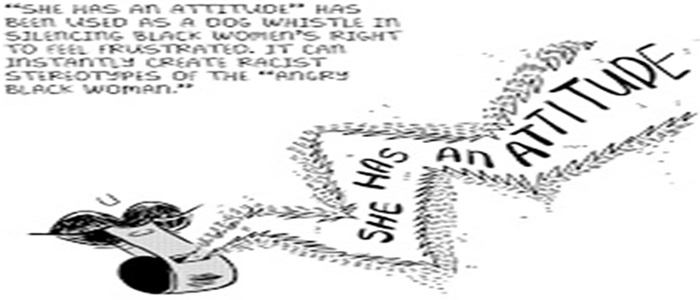
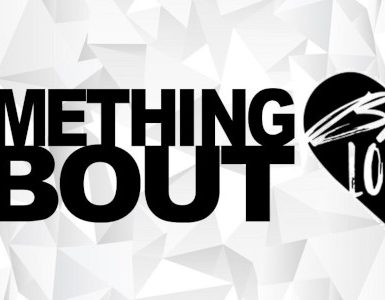



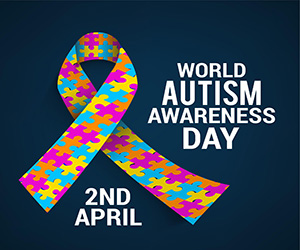
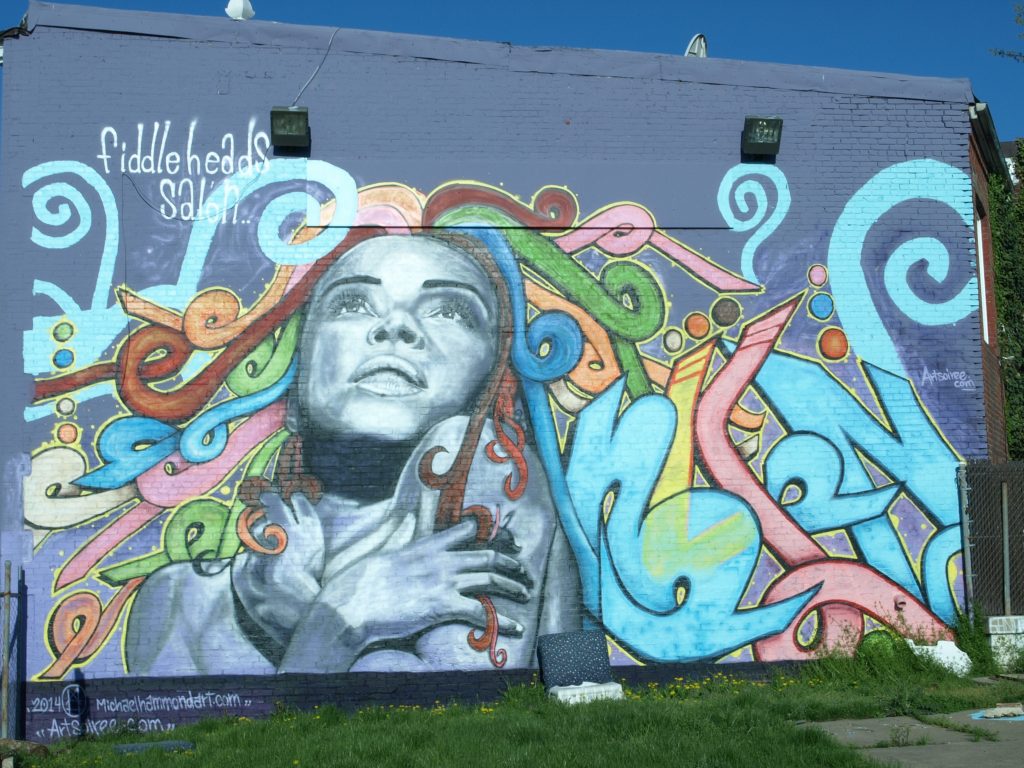
Awesome article! I am a prime example of suppressing my emotions, in fear of being label angry,emotional,bitter,and more.Therefore I struggle with anxiety. This article gives me hope. While searching for other materials if there are other articles or books on the roots of stereotype of black women would be appreciated.
Sincerely
Hello Ramona
Thanks for your feedback! Another stereotype that we face! I will continue to research and will forward you any information that would be helpful.
Don’t care what we do as a black woman that’s how we are characterized in people’s eyes, it’s not enough we are black, but in reality they want us to “shut up” at all times, we should not show any type of emotions, why are we not allowed to express ourselves and other women allowed too?
Hi Helena!
Thank you for your comments! We are intelligent, strong and beautiful women! Others will always try to find a make us believe otherwise! Express yourself!